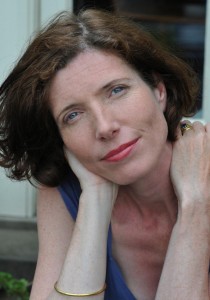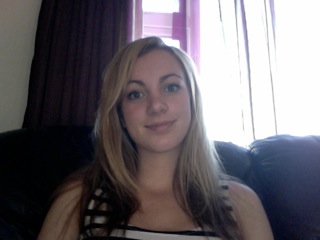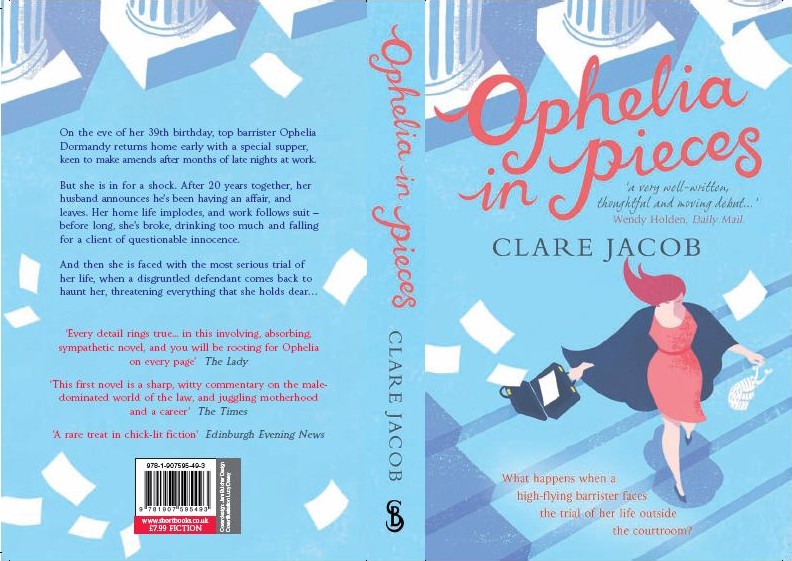Interview with Campaspe Lloyd-Jacob – Kate Nutter

After spending all day reading textbooks and cases, I am incredibly lazy when it comes to reading for pleasure. I don’t want to think too hard about what I am reading, I want something funny, quick and witty. “Ophelia in Pieces” is exactly that, the story of a female criminal barrister and everything that comes with life – interviewer Kate Nutter.
At the launch Edwin Glasgow QC suggested that every BPTC student, or indeed anyone thinking of entering the Criminal Bar should read this book, in order to see the highs and lows that come with the profession. The author, former City GDL student, Campaspe Lloyd-Jacob (who writes under the pen name Clare Jacob) discusses life at City, the profession and the book.
You completed your GDL at City Law School, can you tell us a bit about your time there?
I read English and Italian as an undergraduate and in my last year, I decided I needed to do something so I was more employable. I needed a professional qualification. I met some barristers who seemed intelligent and enjoyed their work. I was also a fan of John Donne and John Webster who qualified as barristers. I was taken with the idea of the law being a training for my mind, in the same way as it was for poets and playwrights in the 17th Century. I decided to become a barrister to understand the world a bit better and more clearly.
Why did you choose City?
I had heard very good things about City. There are not very many places where you can do the conversion course, but City was by far the best. It had very good lecturers, who came from top universities, and a good mixture of lectures and seminars. It was a very intensive course, but I needed it because it was a quick entry into a career. I enjoyed my year at City University. It was very focused and there were lots of very interesting people. It was where I met my husband, who was on the same course.
Is there one thing that you wish you had known before starting law school?
I suppose I feel about this about university generally:I wish I had worked harder at university, because the harder you work, the more you get out of it academically. On the other hand it is impossible to say that, because the reason you are not so engaged with university work is because you are engaged in lots of other things and growing up. I have never regretted working too hard at something, but I have regretted not making the extra effort sometimes.
In the book, Ophelia’s reasons for joining the Bar are based on her father’s arrest, but what were your reasons for joining the criminal bar.
I am rather a curious person and like to know about other people’s lives and stories. I have come to law through literature and a love of books and fiction. For me, criminal law opens you to all these stories and all this life, otherwise I would not have known about it. I grew up in a limited environment and felt not only my mind needed training, but that I needed a better understanding of the world I lived in and an appreciation of the minds of other people of the country I live in. For me, criminal law was a training in life. It has given me some interesting insights and taught me you can empathise with people you might not think you would. You can find humanity in people who have done terrible things and I think that experience is quite precious.
Do you find because of that you learn a lot from your clients?
Yes, yes you do. You understand better about their lives and you understand how to negotiate your way through conflict. One of the reasons I went to the bar was because I wasn’t comfortable with conflict, with holding on to my position and arguing it. I found it easier to make compromises or to look for a way to get round disagreement. I became aware this was something I needed to get a grip on. I needed to be able to hold my ground. Dealing with conflict is essential for a barrister; it is necessary to the relationship you have with your client, your opponent, and the judge.
Where did you do your pupillage?
I started doing a civil pupillage and then did a criminal pupillage at 3 Raymond Buildings, which is where I ended up. I felt very much at home there. It’s quite an old-fashioned set of chambers. I very much liked my pupil mistress and all the grand QCs she was working with. They were funny and welcoming.
When you appear against other barristers in court, is there anything for you that stands out, for both excellent advocacy and for lack of skill?
There are so many ways of being a great advocate. Sometimes you see someone do something magnificent and think I will never be able to do that and sometimes you see tricks that you think work and you can copy that. There are some techniques that silks can get away with and juniors can’t, such as asking leading questions.

One of the most difficult challenges working as a barrister is being able to answer an impossible question. Great advocates just change the subject, appearing to give some sort of answer when really they have just moved the goal posts. I think great advocates, whether in front of jury or a judge sound very relaxed. They make the tribunal feel they can trust what is being said.This comes partly from the advocate knowing the law and having a well-structured argument, and partly it is a human quality.
One of the key attributes a barrister needs to learn is to sound right, to be authoritative without being pompous or boring. One of the things I loved about mooting was having to think on your feet. As a law student you construct an argument with your cases and quotes, but in an exam no one can say, “but what about this?” That’s exactly what happens in court; they try to tease you.
Were the cases mentioned in the book, based on cases you have done in the past?
Nothing that happens in the book has ever happened, they are all fictional. But I suppose I have drawn on elements on cases I have been involved in and situations that have arisen to create a fiction that has a feel of authenticity.
As a mother yourself, how is it practicing whilst raising a family, the book shows how Ophelia copes with it?
It is difficult, but what you really need is fantastic childcare. You need a really good nanny, and that is expensive. I would say the big problem is that, and the other is you are away a lot and when you get home, your children will be at their grumpiest because they are tired. You arrive and it’s bathtime and bedtime stories. In some ways that is the most important part of the day, because you are there helping them into sleep. On the other hand you do see them when they are at their most low and needy. It is difficult to be able to go sports days, school concerts and plays. It depends on what sort of barrister you are and how much time you spend in court, or whether you have to go to Manchester to do four month trials, which is incredibly difficult. It does create great strain.
In the last few years, there has been a lot of negative commentary about the criminal bar, with the cutting in Legal Aid Funds, and how it is not a good profession to go into. What are your views on the future of the Criminal bar?
I think it is difficult. I think it is still a fantastic profession to go into, because it is very interesting work and very important work. It is crucial that people charged with serious criminal offences are properly represented. You can see injustices happening or about to happen if people are not properly represented. Juries are definitely swayed by seeing a story from a different angle and where you have a defendant who isn’t particularly charming they can really suffer. I hope people will continue to go into it, but it is difficult when you are paid less every year for the same work. The rates of pay are shockingly bad.
It is difficult if you are choosing whether to go into commercial or civil work – which is extremely well paid – or criminal which is not. It is hard to not think that rates of pay reflect on your status, living as we do in a capitalist society. I do think it is difficult for people starting out at the criminal bar, but I would encourage people to do so. Not only is it interesting, but also if you are really good at your job, it doesn’t all have to be badly paid. There is private work which is paid at rates similar to commercial work and there will probably be more and more of that as Legal Aid rates becomes so low that many barristers are going to start to refuse to do that work. People who previously would have had a good barrister for free will now start to find money to pay for them. I think there are reasons to go into the profession, but I quite understand why students are depressed by what is happening to the renumeration.
In the book, Ophelia regularly works and looks up to a QC called Samuel, was the character inspired on a barrister you know?
He is based on a couple of people; he is an amalgam of sorts. They know who they are, I mentioned it to one of them, but not the other.
Ophelia finds herself attracted to the charming, but amoral Matthew Mars, a client she defends. It seems for Ophelia that her attraction is based on the lack of attention she receives from her husband, but what do you believe is behind Mars’ attraction, is it lust (since he has affairs previously), is it based on making sure she gets him acquitted?
He is a bit of a womaniser is Mr Mars. He says he likes intelligent women with thin ankles. I think he is a bit of a collector; just as with butterflies, he likes to collect intelligent women, and Ophelia falls into that category. What he will do with her once he has collected her is not entirely clear but he has the collector’s impulse.
On your website you have included the line ‘After years of defending clients accused variously of terrorism, hiding cocaine in coconuts, and stealing underpants she decided to capture the lunacy and mystery of it all in a novel.’ Can you tell us the stories behind them?
In the book there is no mention of any of these things. In an earlier draft there was a character who had an obsession with green and white spotty underpants. I am afraid he had to go, but you never know – he might come up in the sequel!
That joins nicely onto my next question, are there any plans for future books?
I think there will definitely be future books, because I am obsessed with writing them. I love writing, even though its difficult and anxious work especially at the beginning, when you don’t quite know where you are going with the central story.
I am working on two things are the moment, one is a historical novel, which is also a courtroom drama in a way, because the central character is a calvinist character who is in the prisons of the Roman Inquisition. It is about her relationship with her inquisitor, why she is there and how she got there and whether she will ever get out. It is obviously a very different type of book and meant many days in the British library.
I am also plotting a sequel for Ophelia, because I feel it would be a shame not to, because I know all the characters so well. It feels like going into a normal day’s work, all the characters waiting for you at their desks. My main reason for writing the book was to show [the criminal bar] like it is.
Why did you decide to write a book? Why change from barrister to author?
I have always wanted to write books. Probably most writers would say that the desire to write a book comes before you decide what to write about. As a barrister I tried to write a bit for many years – short stories here and there – but it was exceedingly difficult with a full time job to find the clarity and energy and to be rigorous and throw away stuff that didn’t work. My chambers have been very generous. I may very well go back to practicing but I am going to see how it all goes. I miss some things about being a barrister. I miss the company. I miss the fun. I miss the feeling of finite task in front of me. I miss the feeling of more instant feedback, the drama.
On Tuesday 1st March 2012 at 7.15pm, Campaspe will be doing a reading at the Waterstones on Fleet Street. Tickets are free and will be available in due course from the Waterstones at City. Find out more about the book on the Clare Jacob website.
Many thanks to Kate Nutter, third year LLB student at The City Law School and Campaspe Lloyd-Jacob for this fascinating interview.

